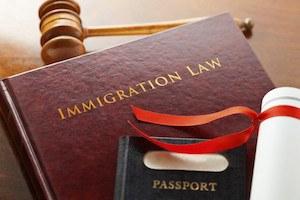REPRESENTATION
Results You Need.

After receiving a University or College degree, completing an F-1 program, or completing a J-1 program, many non-citizens desire a way to legally work and continue in the United States. An H-1B visa is a potential solution for someone in this situation, which permits the non-citizen to work legally in the United States for up to a total of 6 years. H1-B visas, under currently existing United States law, provide a means for companies and organizations to obtain needed skilled and professional non-citizen employees, based upon a shortage of available United States workers to fill job positions. The largest number of H1-B petitions are for science, technology, engineering, and mathematics related employment positions; however H1-Bs visas apply to a diverse array of other skilled, professional job openings.
The petitioner must establish to the US Citizenship and Immigration Services (USCIS) a number of mandatory conditions for H1-B approval: the employment is for a “specialty occupation”, which means that the entry level educational requirement is at least a bachelor degree in fields related to the employment; the foreign visitor qualifies as a professional; and that Labor Condition Application (LCA) is certified by the United States Department of Labor. However, some non-citizens are lawfully able to receive H1-B visas by substituting their work experience when they lack the educational requirement.
The United States government wants to protect citizens and Lawful Permanent Residents from non-citizen labor competition, and encourage the hiring of US citizens and green card holders over all other qualified workers. Companies and organizations operating in the US cannot legally hire cheap foreign labor to try and reduce their operating expenses or bottom lines. H1-B laws require payment of wages to any foreign worker to be the higher of the actual (the wage paid to other workers in similar positions) or the prevailing wage (the average salary for workers in the relevant area of employment), because there are many persons willing to work for less for the privilege to live in the United States. With every H1-B petition the company or organization must attest that the employment of the non-citizen worker will not affect the wages and working conditions of similarly employed United States workers, and the company or organization must also notify its own workers of the its’ intention to hire an H1-B worker.
The US government imposes a “H-1B cap”, which limits the number of H1-Bs that will be authorized and processed each year by the USCIS. Based upon the large numbers of H1-B applicants and the limited number of available H1-B visas, a “H1-B lottery” is conducted by the USCIS to determine which applications will be processed, and which ones will be rejected from consideration. One exception is for non-profit organizations, research institutes, educational facilities, and hospitals, which are sometimes allowed to petition non-citizen worker at any time during the year without cap considerations.
“Dual intent” is permitted for those who successfully win the “H1-B lottery” and receive an H1-B visa from the USCIS, which means that he or she is permitted to maintain an intent to remain in the United States on a temporary or permanent basis. A company or organization is eventually permitted to petition for an employment based green card application to sponsor the non-citizen worker, which allows the the non-citizen worker to become a green card holder (Lawful Permanent Resident) upon approval.
It is recommended for you to retain immigration law specialist Sufen Hilf of Hilf & Hilf, PLC to handle your H1-B file for a variety of reasons: first, Immigration laws are constantly subject to change, and you need someone who is up to date on changes in law and policy to properly handle your file; second, there are a number of situations that are more heavily scrutinized (for example: third party placement; positions at lower wage levels; H1-B visa transfers; positions that have low qualification or skill requirements; students on F-1 visas and OPT seeking a H1-B visa; etc.) which should be handled by a lawyer; third, there are many technical components to filing the H1-B petition, such as correctly completing and filing the petition, accurately providing prevailing wage information, responding to a Request for Evidence, etc. that also require a competent immigration lawyer’s representation; fourth, having someone to answer questions and provide information concerning the file is an important and stress reducing part of the process. Contact Hilf & Hilf, PLC today for outstanding immigration legal representation when it comes to all United States immigration issues, including H1-B petitions.